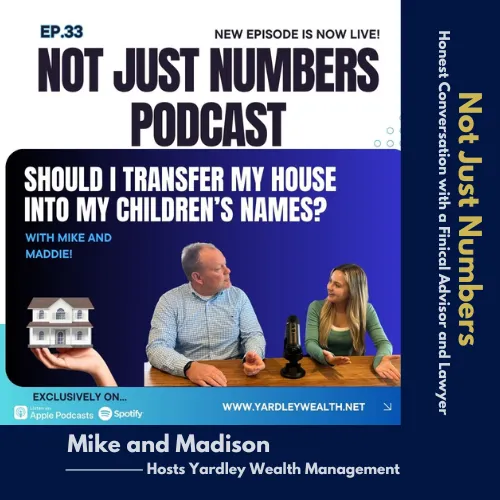Episode 33:
Should I Transfer My House into My Children’s Names?
Hosts: Madison Demora and Mike Garry
Episode Overview
In this informative episode, Mike Garry and Madison Demora tackle the common but complex question of whether homeowners should transfer their house into their children’s names. The discussion covers crucial aspects including tax implications, Medicaid eligibility, family dynamics, and potential risks. Mike provides expert insights on why this seemingly simple solution to estate planning can have serious unintended consequences and offers guidance on making informed decisions.
Listen to Our Podcast On:
Timestamps
- 00:09 – 01:05 – Introduction to episode topic: Should I Transfer My House Into My Children’s Names?
- 01:06 – 03:05 – Reason for Transfer & Risks
- 03:06 – 06:25 – Tax Consequences & Medicaid Eligibility
- 06:26 – 09:17 – Family Relationships and Assessing the Decision
- 09:18 – 11:57 – Property Appreciation & Long-Term Care Planning
Follow Us on Social Media
Stay updated with the latest episodes and news by following us on social media:



